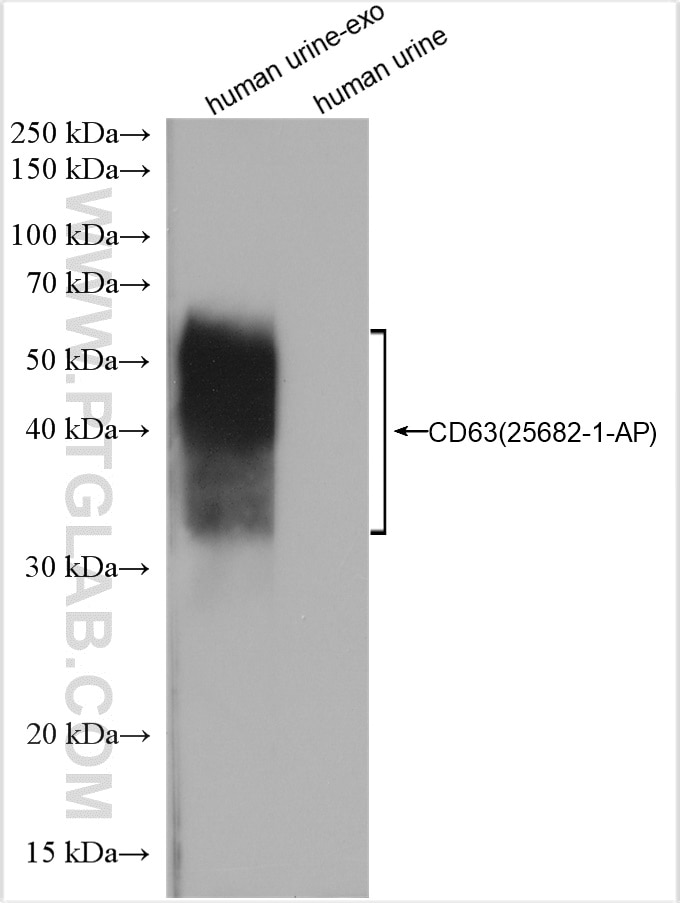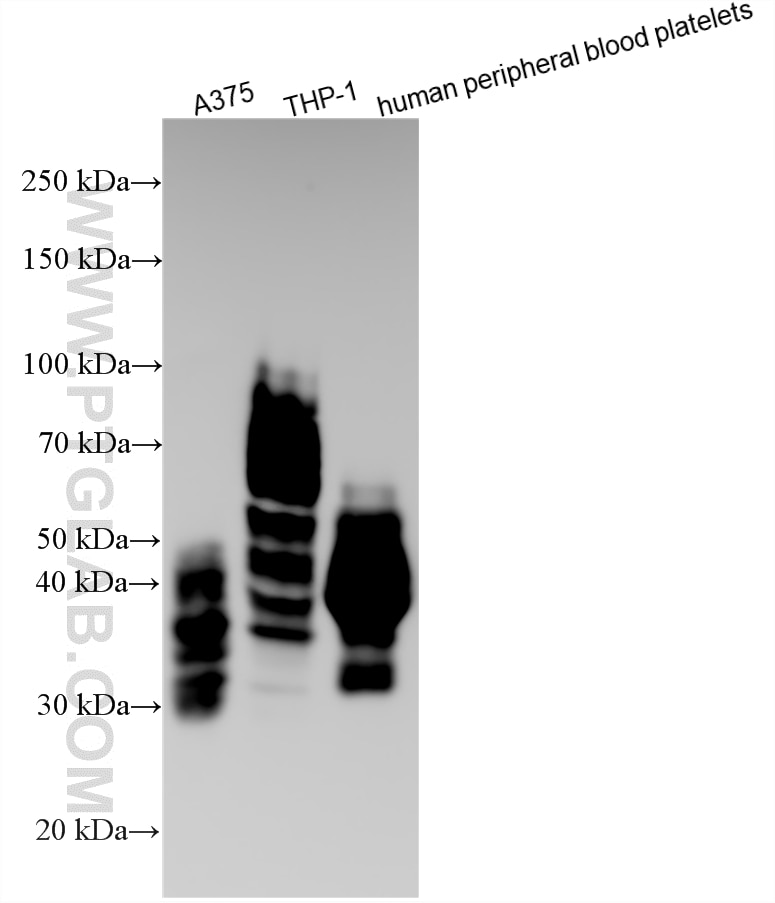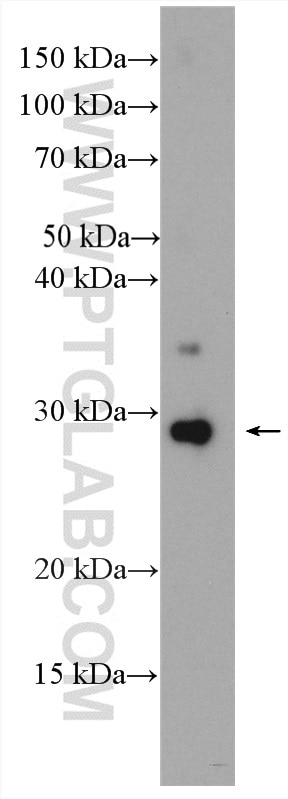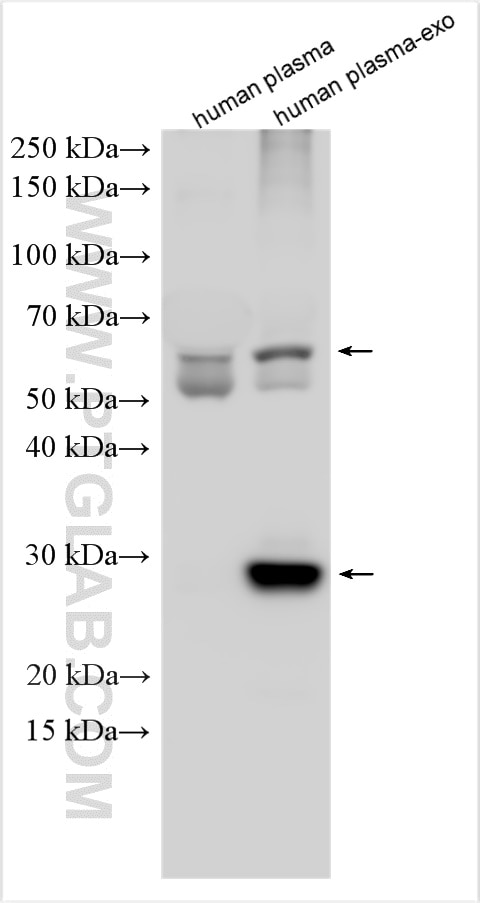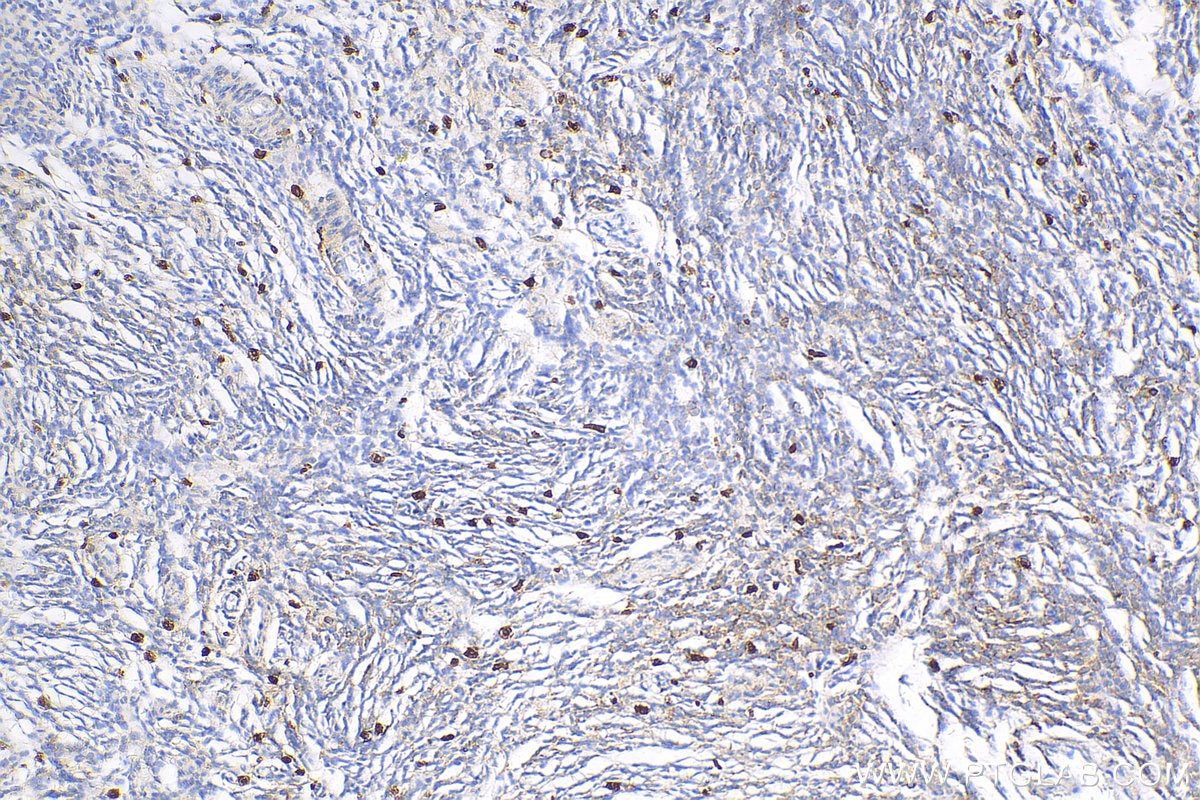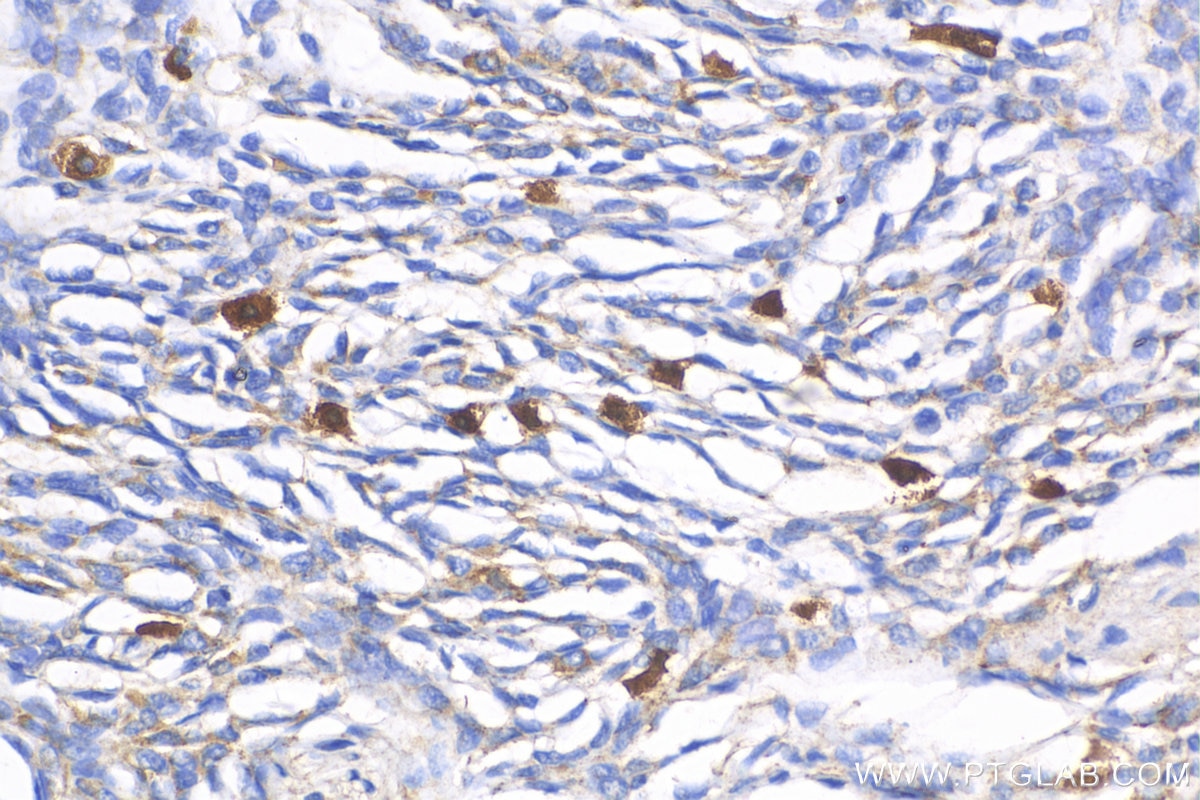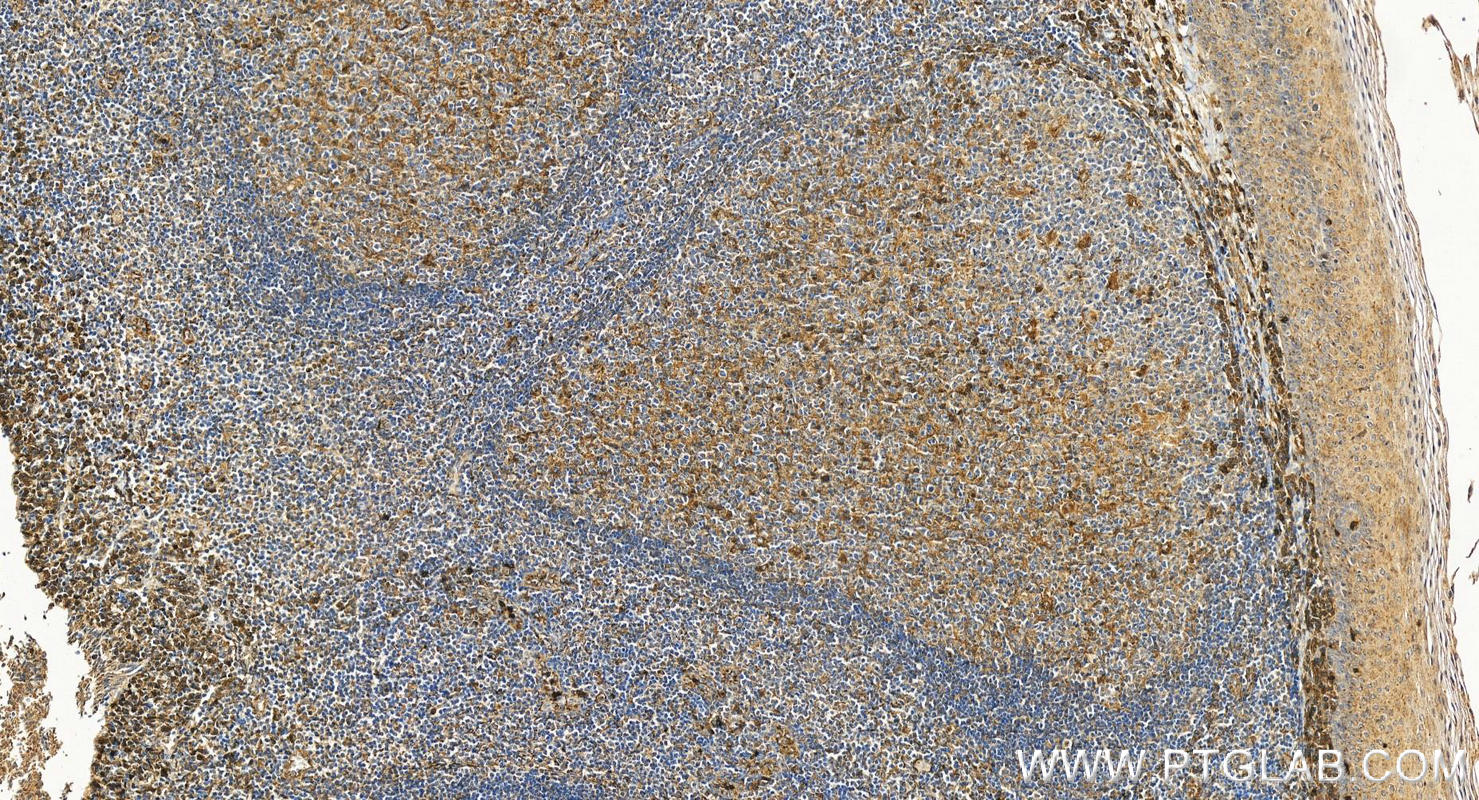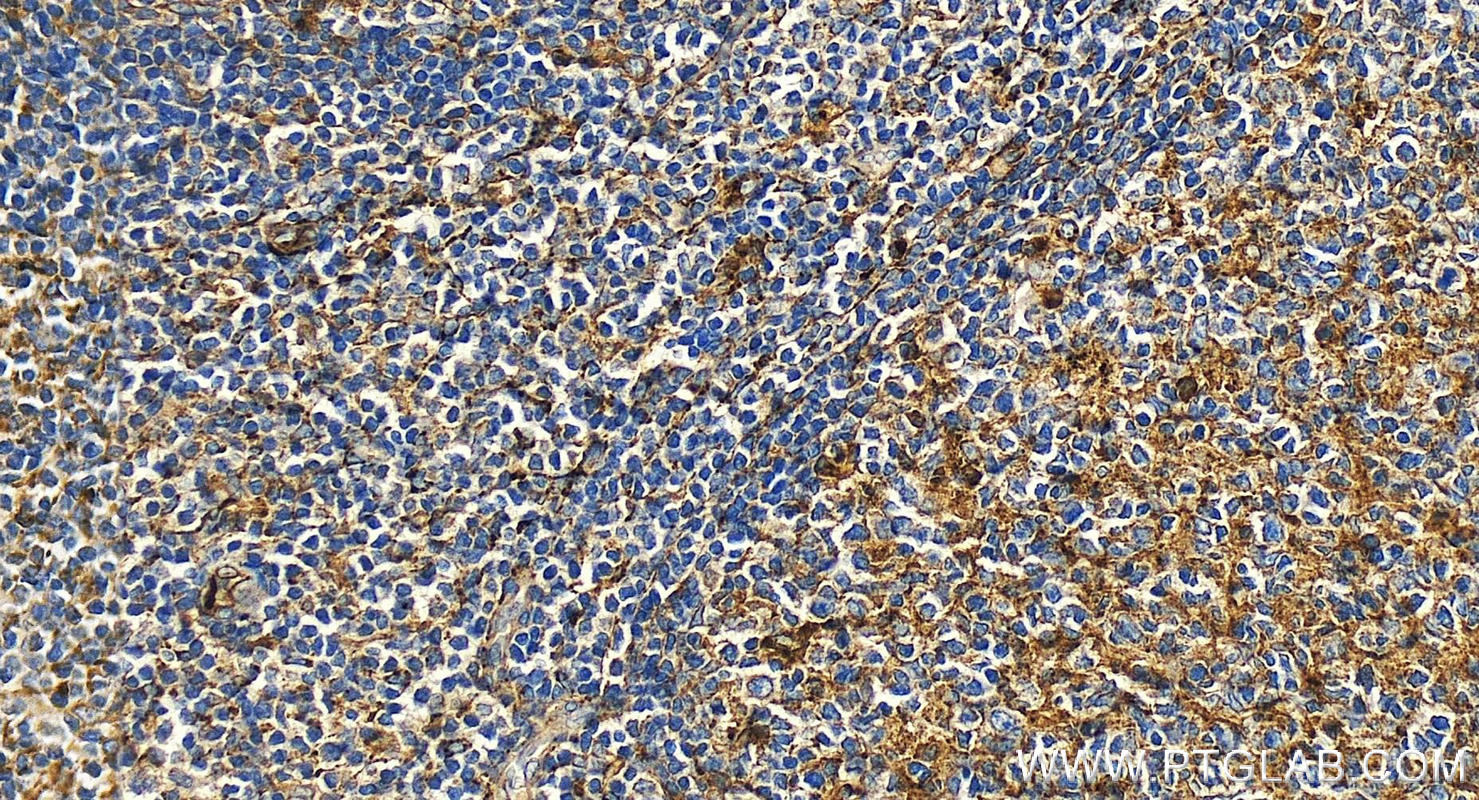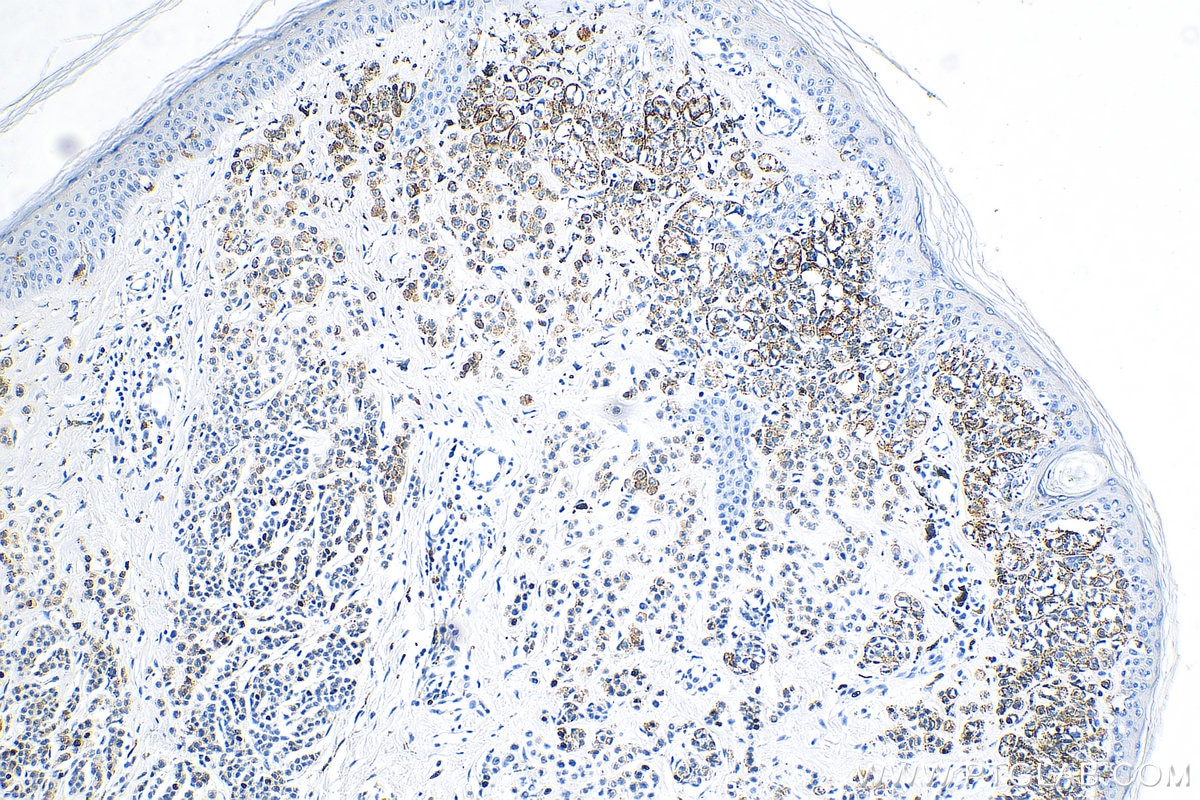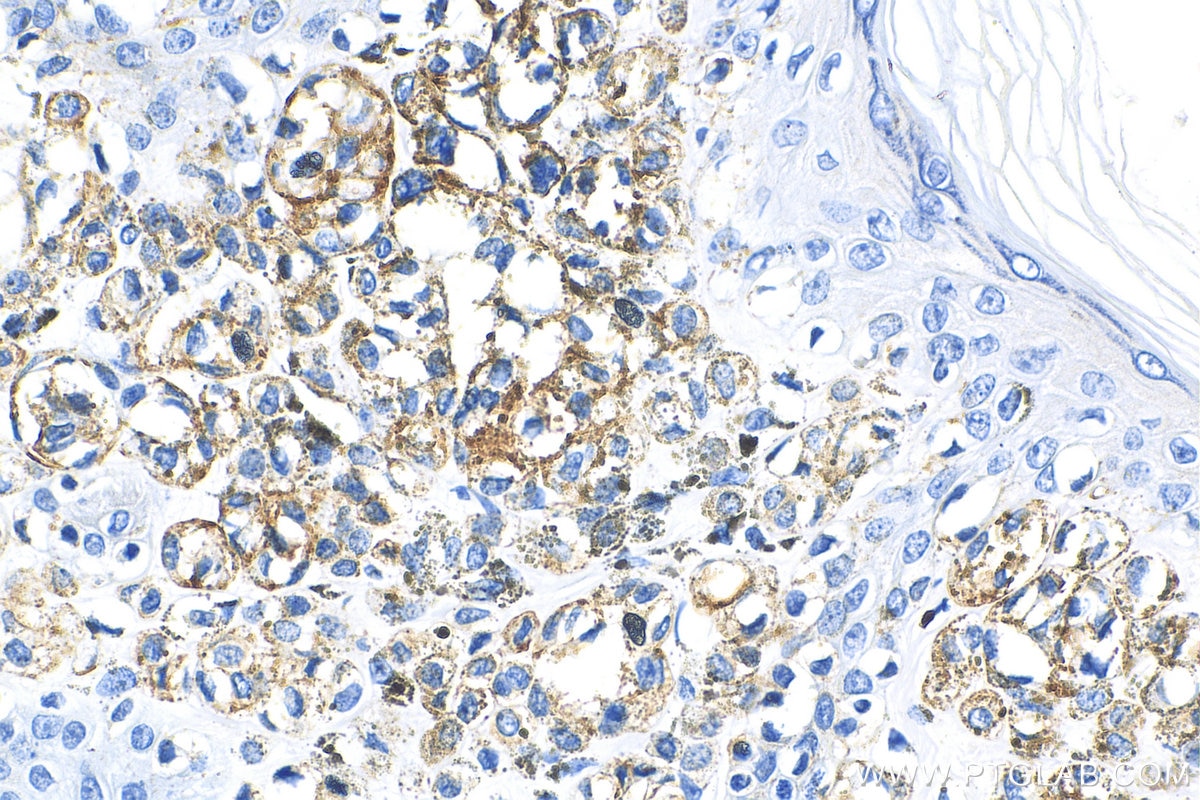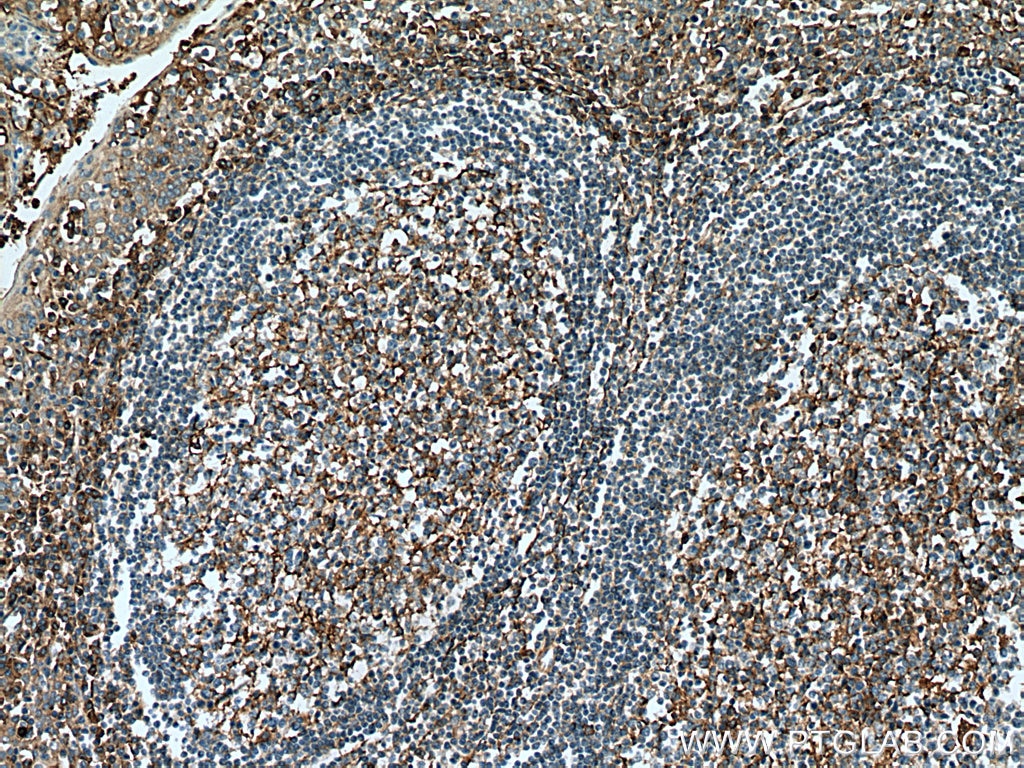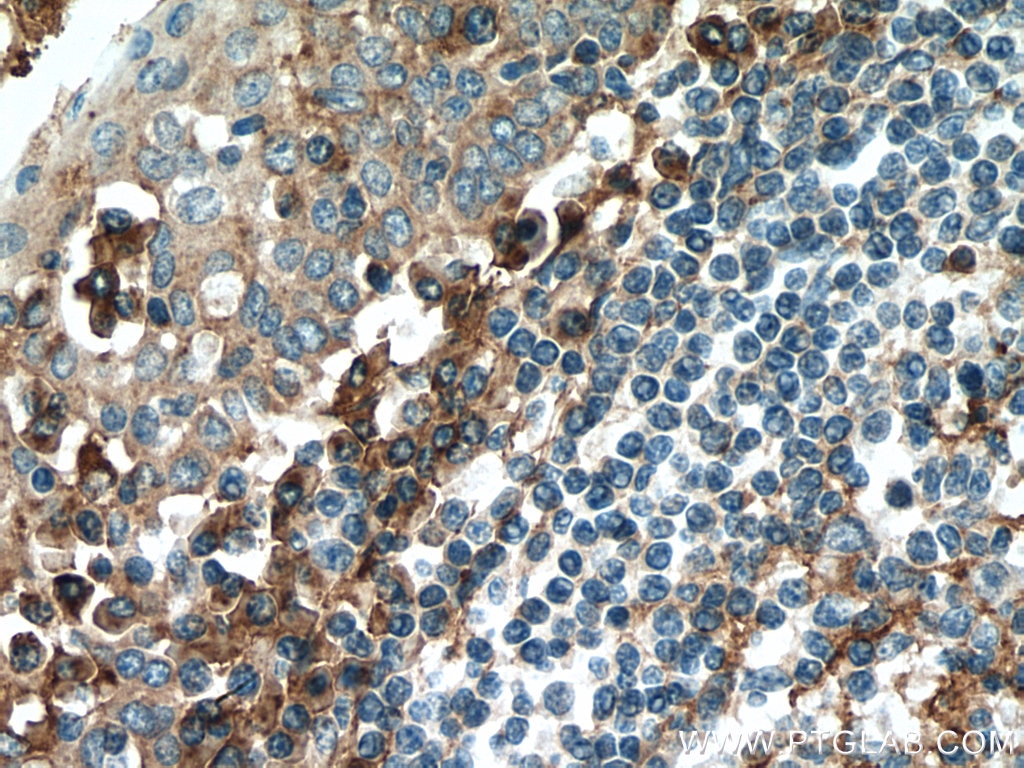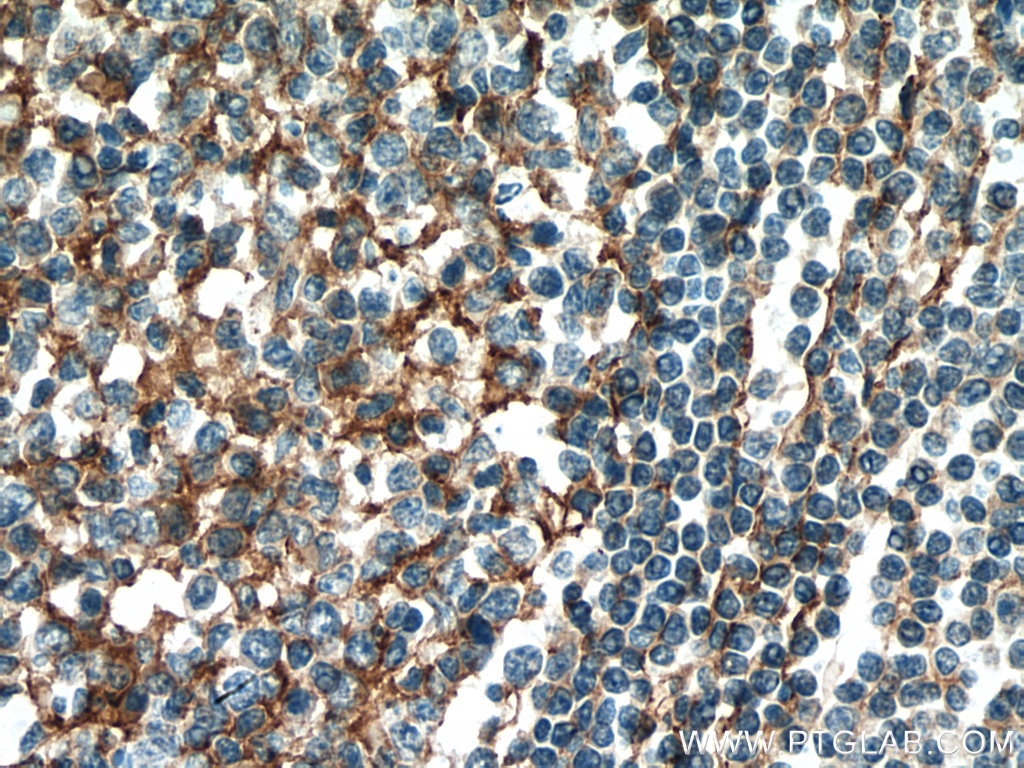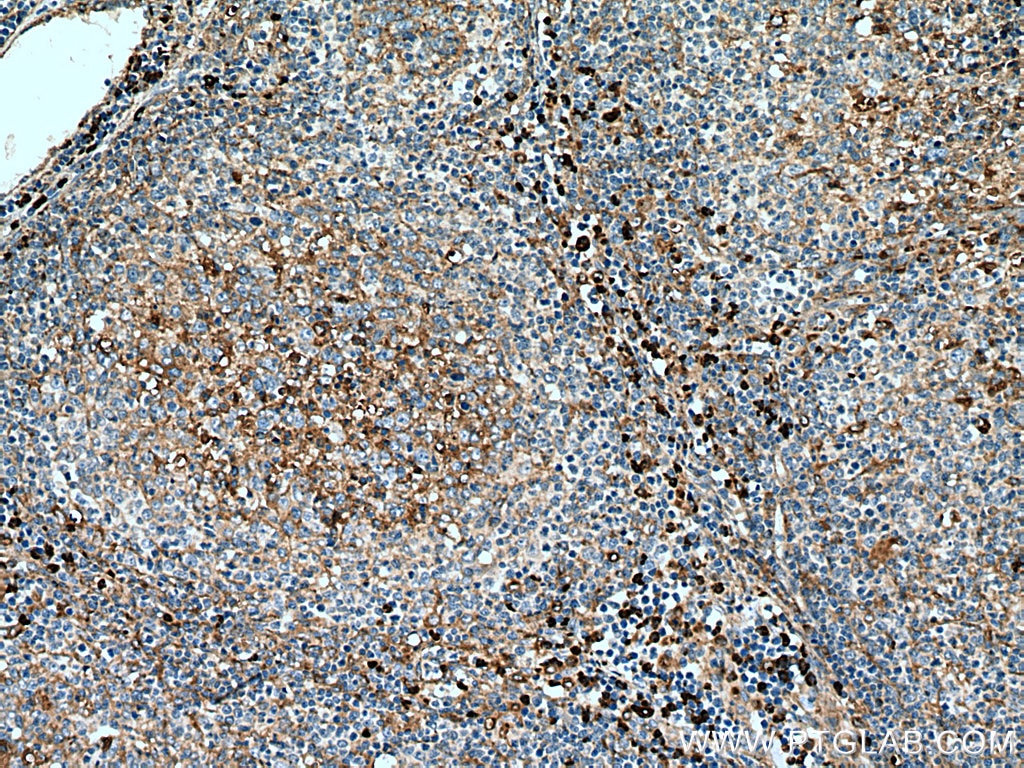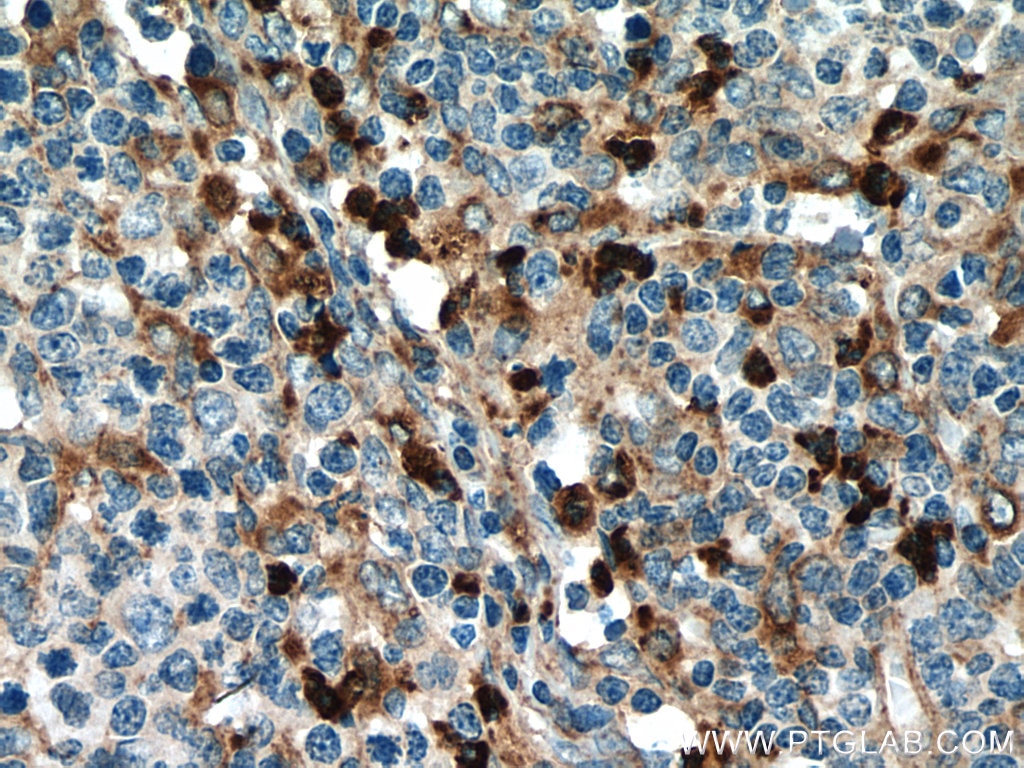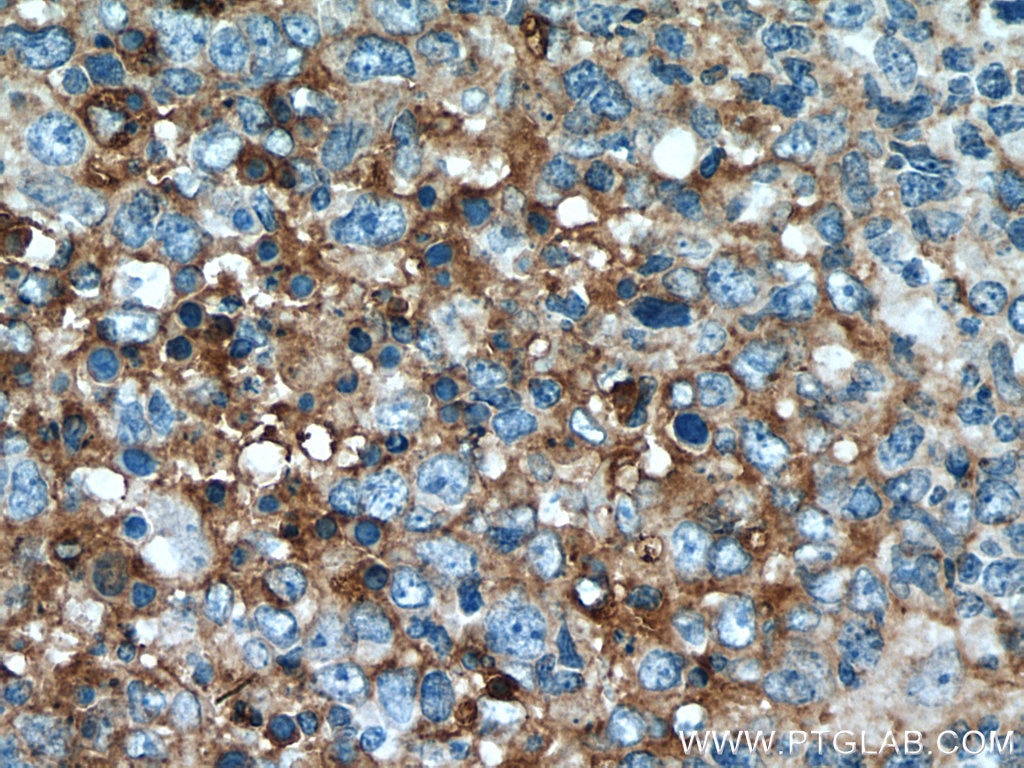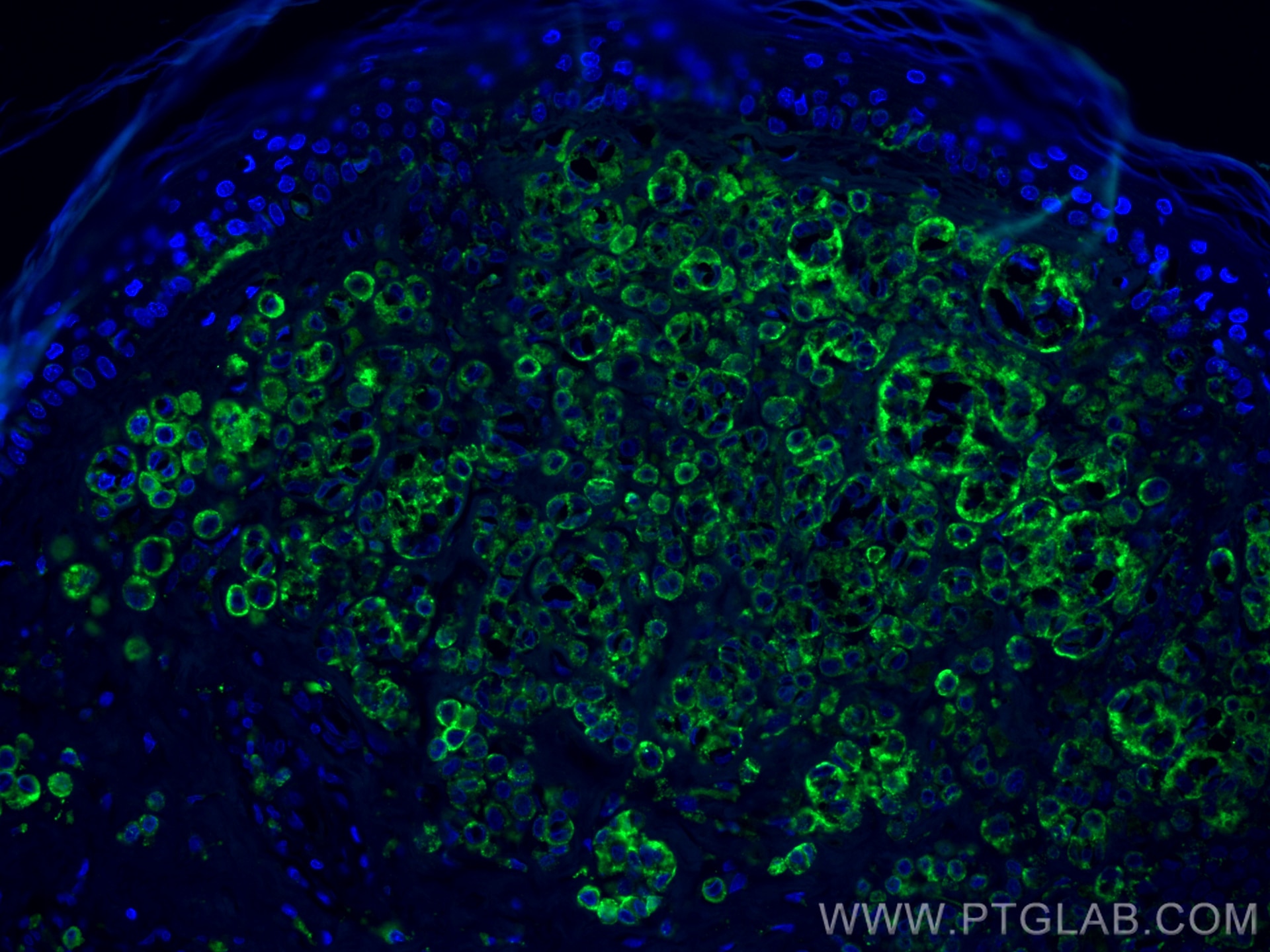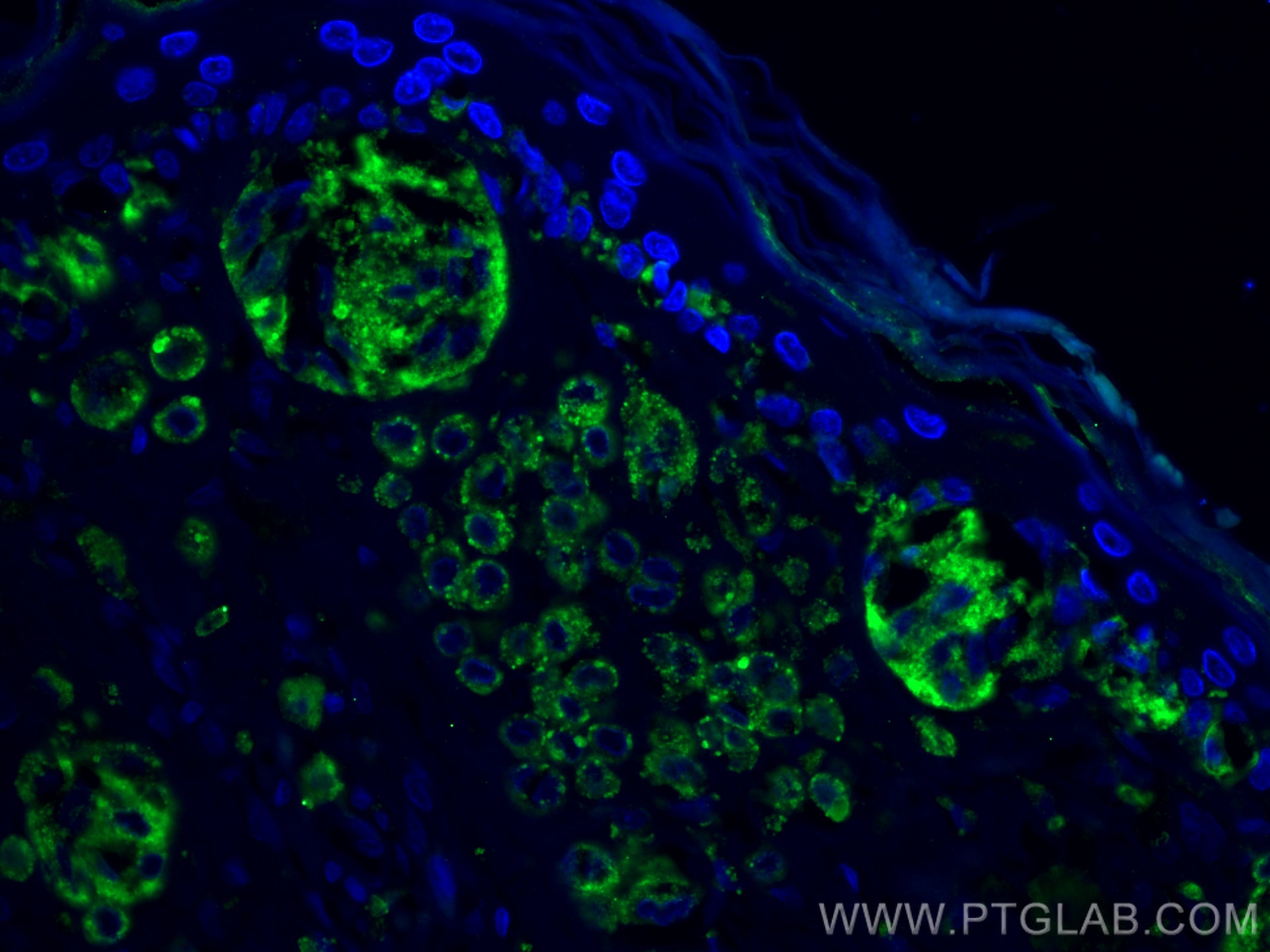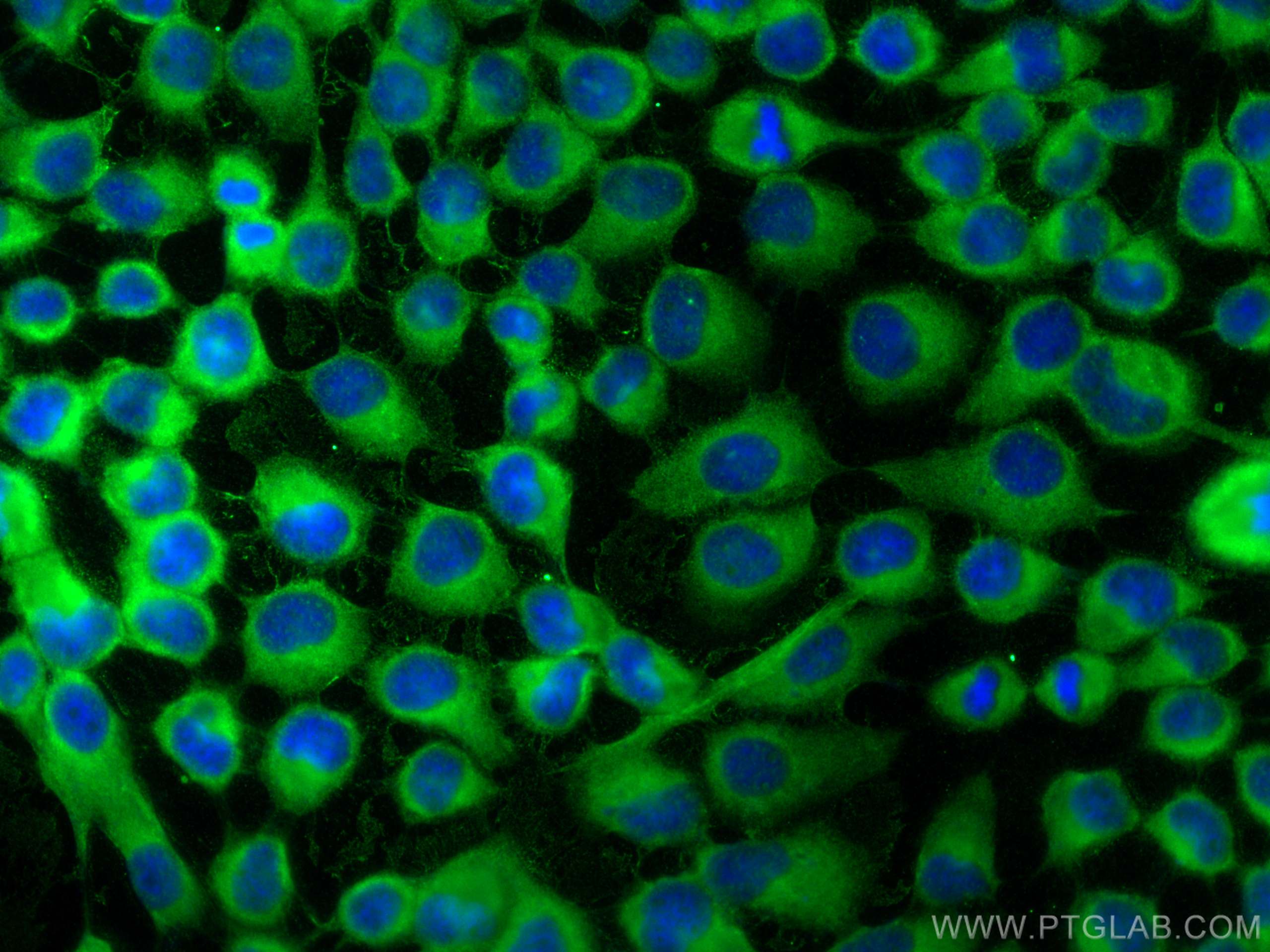- Phare
- Validé par KD/KO
Anticorps Polyclonal de lapin anti-CD63
CD63 Polyclonal Antibody for WB, IHC, IF/ICC, IF-P, Indirect ELISA
Hôte / Isotype
Lapin / IgG
Réactivité testée
Humain
Applications
WB, IHC, IF/ICC, IF-P, Indirect ELISA
Conjugaison
Non conjugué
N° de cat : 25682-1-PBS
Synonymes
Galerie de données de validation
Informations sur le produit
25682-1-PBS cible CD63 dans les applications de WB, IHC, IF/ICC, IF-P, Indirect ELISA et montre une réactivité avec des échantillons Humain
| Réactivité | Humain |
| Hôte / Isotype | Lapin / IgG |
| Clonalité | Polyclonal |
| Type | Anticorps |
| Immunogène | CD63 Protéine recombinante Ag19690 |
| Nom complet | CD63 molecule |
| Masse moléculaire calculée | 26 kDa |
| Poids moléculaire observé | 30-60 kDa |
| Numéro d’acquisition GenBank | BC002349 |
| Symbole du gène | CD63 |
| Identification du gène (NCBI) | 967 |
| Conjugaison | Non conjugué |
| Forme | Liquide |
| Méthode de purification | Purification par affinité contre l'antigène |
| Tampon de stockage | PBS only |
| Conditions de stockage | Store at -80°C. 20ul contiennent 0,1% de BSA. |
Informations générales
CD63 is a 30-60 kDa lysosomal membrane protein that belongs to the tetraspanin family. This protein plays many important roles in immuno-physiological functions. It mediates signal transduction events that play a role in the regulation of cell development, activation, growth, and motility. CD63 is expressed on activated platelets, thus it may function as a blood platelet activation marker. CD63 is a lysosomal membrane glycoprotein that is translocated to plasma membrane after platelet activation. The CD63 tetraspanin is highly expressed in the early stages of melanoma and decreases in advanced lesions, suggesting it as a possible suppressor of tumor progression. Deficiency of this protein is associated with Hermansky-Pudlak syndrome.
